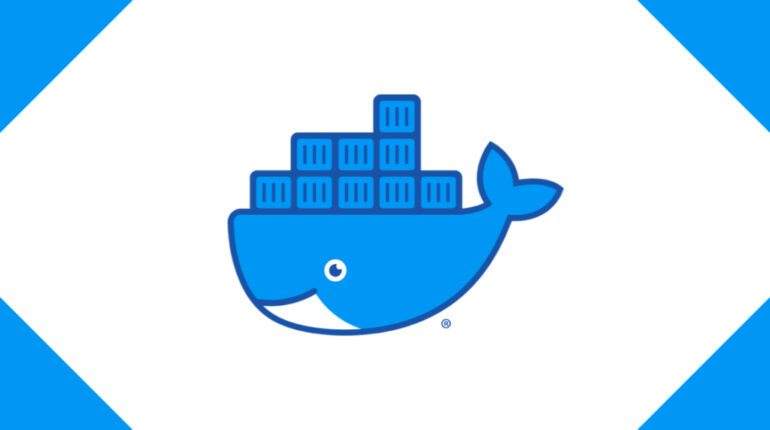TL;DR:
- Docker Inc. is delving into the world of AI to facilitate the development of generative AI applications.
- They’ve introduced the GenAI stack, integrating Docker with Neo4j, LangChain, and Ollama for enhanced AI development.
- Docker AI, their new tool, assists developers by offering insights and solutions, using a unique “mech suit” approach.
- Docker’s focus on simplifying GenAI development could significantly impact the market.
- Their commitment to developers is evident, with 20 million monthly active developers worldwide.
- The GenAI stack is free and user-friendly, catering to various AI use cases.
- Docker AI leverages proprietary data for troubleshooting and issue resolution in container development.
Main AI News:
Beneath the surface of virtually every generative AI application today, whether it’s for training or inference, Docker containers reign supreme as the go-to deployment method. At this year’s Dockercon conference in Los Angeles, Docker Inc., the pioneering force behind the open-source docker container technology, is making a bold foray into the realm of AI. Their strategic initiatives are laser-focused on empowering developers to expedite the development of generative AI applications.
Among these endeavors is the unveiling of a groundbreaking GenAI stack, seamlessly integrating Docker with the Neo4j graph database, LangChain model chaining technology, and Ollama, a platform designed for running large language models (LLMs). The freshly introduced Docker AI product, making its debut at Dockercon, offers an integrated approach for developers to tap into AI-powered insights and development guidance within container environments.
The significance of Docker in today’s modern development ecosystem cannot be overstated. Docker’s recent redoubled commitment to developers is beginning to pay dividends, as Docker CEO Scott Johnston shared, “For four years running, Stack Overflow’s community of developers has voted us number one most wanted, number one most loved developer tool. And we’re now up to 20 million monthly active developers from all around the world.”
While Docker containers have become a staple for sharing and deploying AI, Johnston emphasized the need for simplifying the development of GenAI applications. These applications typically demand a few core components, including a vector database, now seamlessly integrated into Neo4j’s graph database platform. Additionally, GenAI relies on large language models (LLMs), a requirement met by Ollama’s platform, enabling users to run LLMs, including the formidable Llama 2, locally. Given that modern GenAI applications are often multi-step in nature, LangChain plays a pivotal role with its versatile framework. Stitching together these diverse pieces in container environments would typically entail considerable effort, a challenge elegantly addressed by the GenAI stack.
The Docker GenAI stack is meticulously crafted to provide developers and the enterprises they serve with a straightforward entry point into AI development using containers. The stack targets several use cases, including the creation of a support agent bot with retrieval augmented generation (RAG) capabilities, a Python coding assistant, and automated content generation. Johnston added, “It’s pre-configured, it’s ready to go, and developers can start coding and experimenting to help get the ball rolling.“
Designed to run seamlessly on a developer’s local system, the entire GenAI stack is offered free of charge. As developers progress in building their applications and require deployment and commercial support, Docker and its partners are poised to provide flexible options.
Today’s market boasts no shortage of GenAI developer tools, with offerings like GitHub Copilot and Amazon CodeWhisper gaining popularity. Docker is now stepping into the arena with its very own GenAI tool, aptly named Docker AI. Rather than branding Docker AI as a copilot, a term increasingly used by Microsoft and other vendors for GenAI tools, Docker prefers to call it a “mech suit.” The concept is simple: with the mech suit, developers gain enhanced power and capability to tackle tasks effectively.
Docker AI has been meticulously trained on Docker’s proprietary data, derived from millions of Dockerfiles, compose files, and error logs. This AI seamlessly integrates into developers’ workflows, providing assistance when errors arise. It presents potential fixes within the development environment, allowing developers to test solutions before committing changes. The ultimate aim is to create a superior troubleshooting and issue-resolution experience for developers.
Johnston underscored that while tools like GitHub Copilot are undeniably useful and potent, Docker AI is custom-tailored to enable container development. “It has been trained on a rich proprietary stream of Docker data that other LLMs don’t have access to,” he noted.
Conclusion:
Docker’s GenAI stack and Docker AI tool signify a strategic move to empower developers in the GenAI application space. By simplifying the development process and enhancing troubleshooting capabilities, Docker aims to play a pivotal role in the growing AI market, offering valuable solutions to developers and enterprises.

